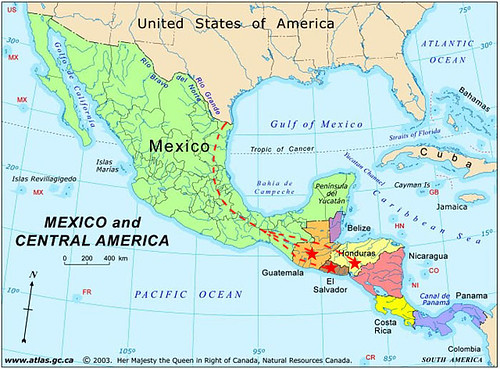Search News
For the Media
For media inquiries, call CWA Communications at 202-434-1168 or email comms@cwa-union.org. To read about CWA Members, Leadership or Industries, visit our About page.
Seeds of Border "Humanitarian Crisis" Sown in Trade Deals
Editor's Note: In a ground-breaking series on the crisis, the Arizona Republic wrote profiles of some of the migrant youths, following their journey from Honduras, El Salvador and Guatemala through Mexico to the Rio Grande.
Journalists from the Los Angeles Times and Public Radio International have done stories about conditions in the overcrowded detention centers where the migrant youths and families are housed while they are being processed.
After treacherous, harrowing travel from Central American cities through the vast expanse of Mexico – braving human smugglers called coyotes or polleros and risking being robbed, beaten, raped, held for ransom or killed – the journey to hope for these Central American youths often ends in dank, overcrowded cells filled with uncertainty and despair.
And those are the lucky ones.

Central American migrant youths escaping crushing poverty and gang violence in Honduras, El Salvador and Guatemala travel 1,200 miles over harsh and dangerous terrain in Mexico to get to the Rio Grande Valley where they hope to surrender to American Border Patrol agents.
Often, the children arrive with only a small piece of paper with the name and address of a relative or family friend in the U.S. They are told by their mothers to find and turn themselves in to a uniformed border agent.
The tide of migrant youth and families fleeing poverty and gang violence in Central American cities in El Salvador, Guatemala and Honduras at the Texas Rio Grande has grown from a trickle a few years ago into a flood that President Barack Obama recently described as an "urgent humanitarian crisis."
But in the finger-pointing and shirking of responsibilities that have been the hallmark of those saying they want solutions, very few are acknowledging the role of U.S. policies and the effect of U.S. corporate involvement in those countries.
Our trade agreements with those nations, used by multinational corporate agricultural businesses to dump products into their markets, have so totally disrupted the region that many small family farms are abandoned as people are forced off lands and into cities where there are no jobs, no future and gangs roam and crime runs rampant. School children are being pressed into selling drugs or into prostitution by gangs. Defy them and risk death or someone making an example of your family.
Honduras has the highest murder rate in the world, and its neighbors Guatemala and El Salvador, are also among the highest. A recent United Nations High Commission for Refugees investigation found that no less than 58% of the Central American children interviewed were forcibly displaced because they suffered violence or faced threats that indicated a potential need for international protection.
The AFL-CIO Executive Board issued a statement stressing that the Obama administration has the authority under the U.S. Immigration and Nationality Act to designate these children as "refugees" and is urging the president to do so. The AFL-CIO strongly urged Obama not to send the children back to the dangers that they are escaping from.
The Rev. Richard Pates of the United States Conference of Catholic Bishops decried that all anyone wants to do in response to the crisis is to send in the U.S. Marines.
"While there is a role for security assistance, we also urge that an increased proportion of budgetary expenditures attributable to U.S. international aid be allocated to support the fostering of human rights, a just and humane civil society, and broad-based economic development," Rev. Pates wrote.
The problem is we have not learned our lessons from the effects of trade deals like the North American Free Trade Agreement (NAFTA) and the others, which created the environment that allowed the crisis to fester. American trade negotiators are hell bent on pushing through the disastrous Trans-Pacific Partnership agreement, a corporate power grab that seeks to do for the rest of the world what NAFTA and CAFTA and other such agreements have done for Central and North America.